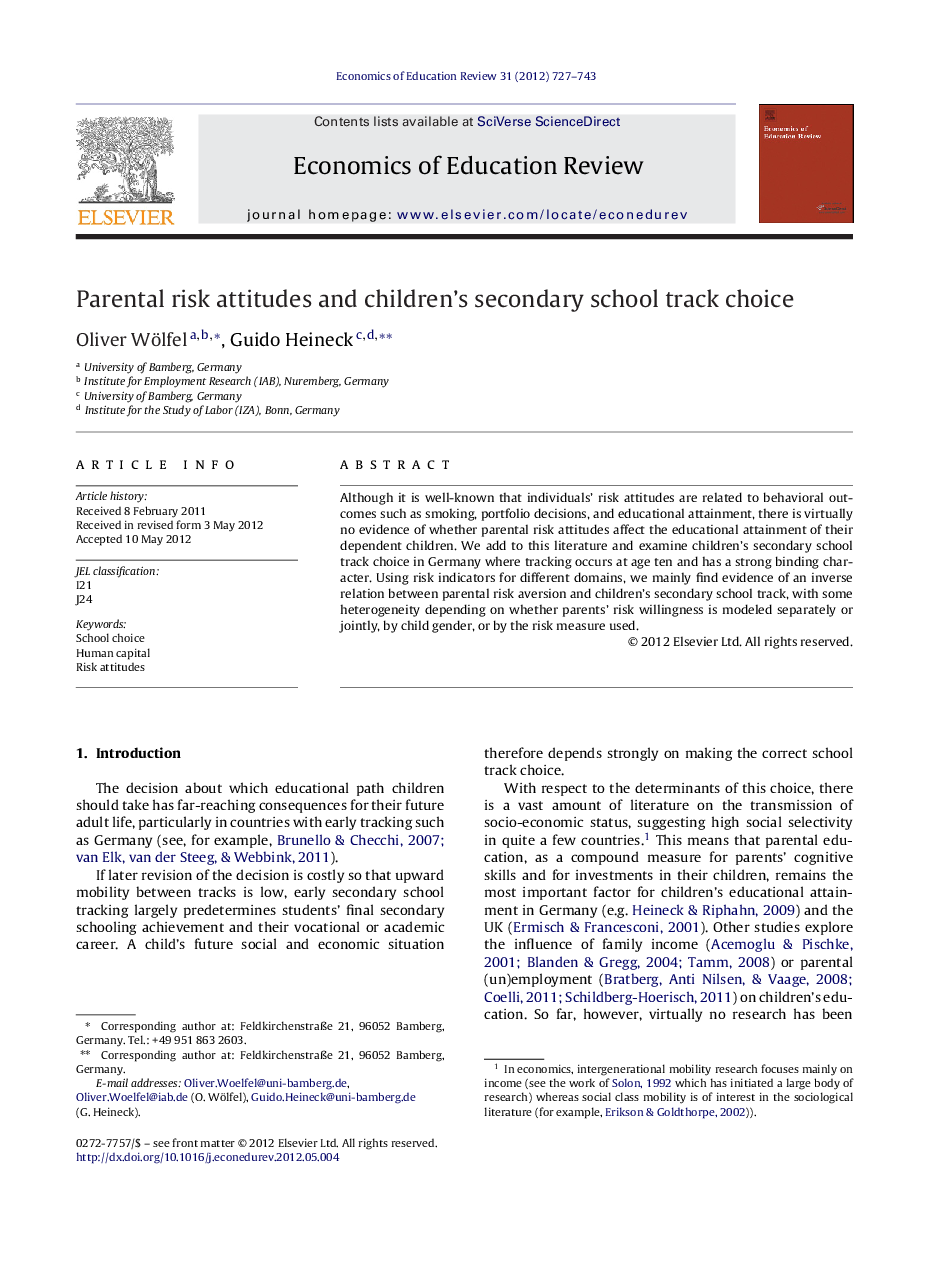| کد مقاله | کد نشریه | سال انتشار | مقاله انگلیسی | نسخه تمام متن |
|---|---|---|---|---|
| 354440 | 1434833 | 2012 | 17 صفحه PDF | دانلود رایگان |

Although it is well-known that individuals’ risk attitudes are related to behavioral outcomes such as smoking, portfolio decisions, and educational attainment, there is virtually no evidence of whether parental risk attitudes affect the educational attainment of their dependent children. We add to this literature and examine children's secondary school track choice in Germany where tracking occurs at age ten and has a strong binding character. Using risk indicators for different domains, we mainly find evidence of an inverse relation between parental risk aversion and children's secondary school track, with some heterogeneity depending on whether parents’ risk willingness is modeled separately or jointly, by child gender, or by the risk measure used.
► We model secondary school track choice in Germany, an early tracking country.
► Children of risk averse mothers are more likely enrolled in lower secondary schooling.
► Children of risk loving mothers are more likely enrolled in upper secondary schooling.
► The results are stronger for girls than for boys.
► The results for fathers are not as convincing or consistent.
Journal: Economics of Education Review - Volume 31, Issue 5, October 2012, Pages 727–743